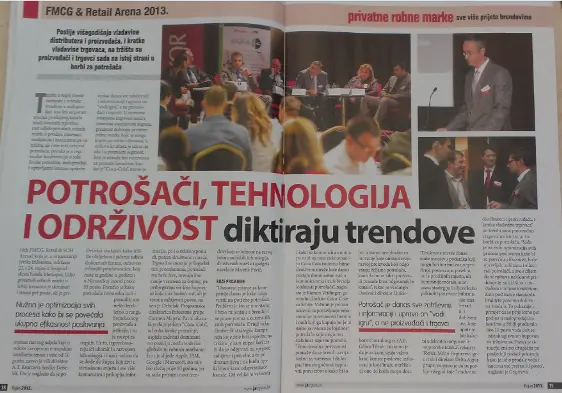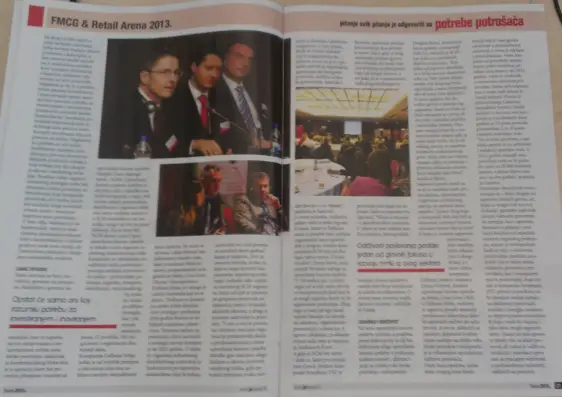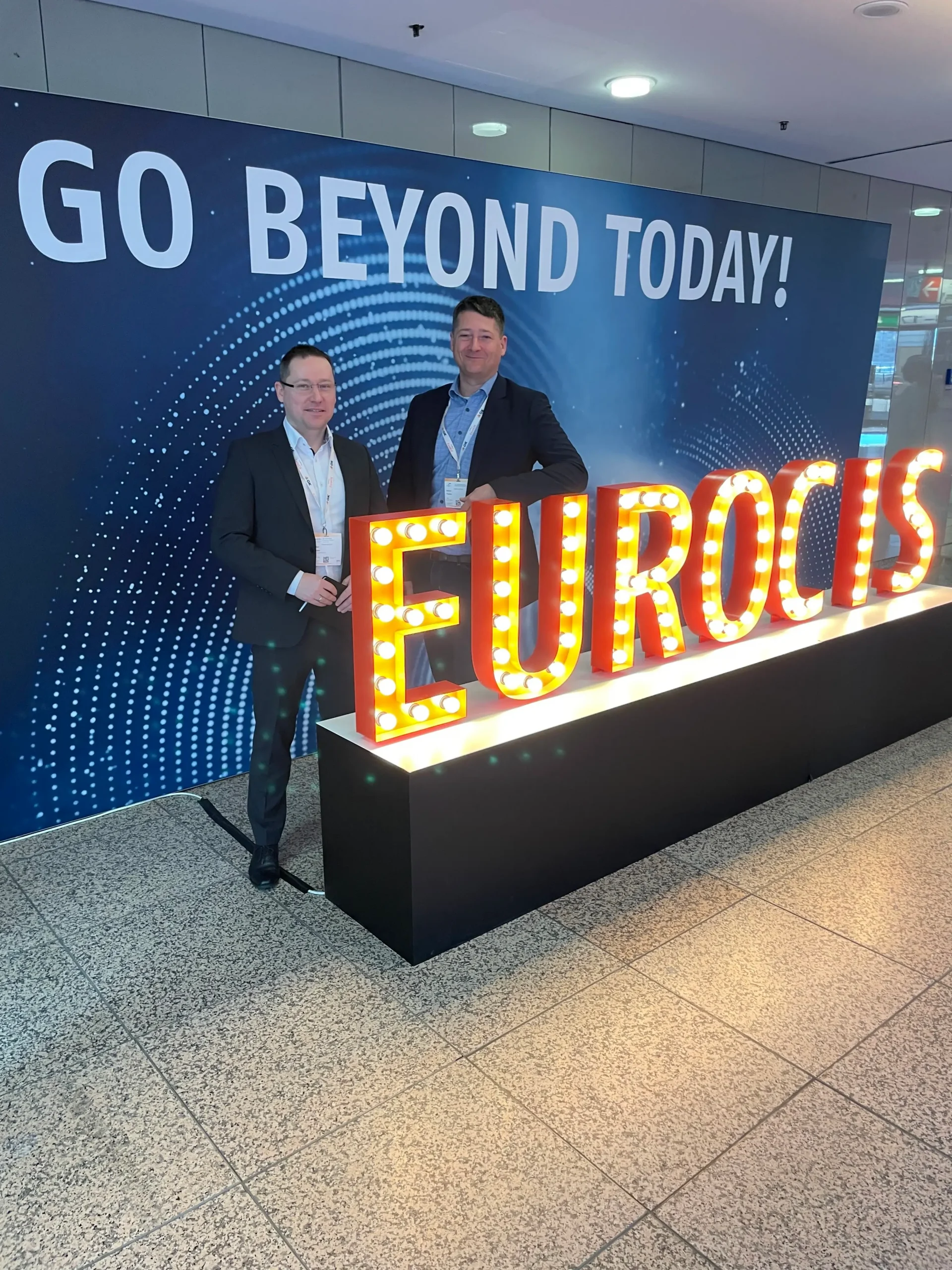Jatrgovac, Serbian retail magazine and trade portal on consumer goods has featured Quickborn Consulting in its press article on the 4th FMCG & RETAIL ARENA 2013 – the central event of regional FMCG & RETAIL industry – held on 23rd and 24th September, 2013 in Belgrade, Serbia.
The article discusses trends currently affecting the local, European and worldwide retail and FMCG market, such as changing customer profiles, new technology and sustainable development. The article shares thoughts from different panelist representatives at the FMCG & RETAIL ‘Leaders Roundtable: Lessons Learned & Key Success Factors for Survival – Regional Experiences”, among them Gabor Tozser, CEO of Quickborn Consulting.
The original article can be read at the Jatrgovac magazine website and the English translated summary of the article below.




FMCG & Retail Arena 2013 Customers, technology and sustainable development dictate trends
After long-term ruling of retailers and manufacturers, and short ruling of online retailers, the manufacturers and retailers are now on the same side in the struggle for the customer in the market. The 4th FMCG, Retail & SCM Arena – a regional conference of consumer goods, retail and supply chain management organized by Infoarena – took place the 23 and 24 September at Hotel Metropol in Belgrade, Serbia. The key message from the event was that the retail market in the region has followed the European and worldwide trends, such as growth of the importance of multi-channel in traditional retail, the increase of the proportion of private label sales, internationalization and concentration of the market, but also the increasingly high customer expectations. “The proportion of private labels in Serbia is currently a modest five percent, but there is an expected increase on this market, which in some more developed European countries is more than 50 percent”, said Srečko Debelak, Senior Director at A.T. Kearney. He emphasized that the customers are more demanding and informed and are the ones leading the game, instead of the manufacturers and retailers. “In conditions of decreasing purchasing power and higher price sensitivity of customers, the advantage is given to private labels, which can be bought at lower prices, and their quality is going to the premium segment, which was once reserved for well-known brands, such as “Coca-Cola””, said. He also added that the market noted a proportional increase of discount chains and stores, the number growing from year to year, and which for example in Germany already accounts for more than 55 percent of stores. “It is necessary to educate customers providing something qualitative on an equal basis branded products and to offer it cheaper. This is the recipe for success.” said Debelak. “At the same time, retailers have to keep in line with the development of technologies and find ways reach the customer who lives in the virtual world, communicates more and more, and gathers information about the market offering through social networks. Retailers have to adapt to these changes. Customers live faster, do not have as much time for shopping as earlier, and thus shop more and more online in the future. But all this is very laborious work for retailers”, added Debelak. Carmen Majetić, Program director of Infoarena Group, currently present at parliamentary elections, pointed out that only “Coca-Cola” as consumer goods brand managed to maintain a dominant position among the leading world brands, followed by Apple, IBM, Google and Microsoft, in the market influenced by rapid development of information technologies, social networks and devices, said Majetić. *** Gábor Tőzsér, Founder and Director of USA based Quickborn Consulting, noted how important for retail companies it is to identify and take use of business-information available about the market. “Social networks are now offering a wealth of data that can be very useful for business improvement, especially at sales points, but the company must have a clear strategy and objectives to gather information, to analyze it and of how the results are used to adequately respond to the market needs” said Tőzsér.






